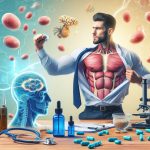This website uses cookies so that we can provide you with the best user experience possible. Cookie information is stored in your browser and performs functions such as recognising you when you return to our website and helping our team to understand which sections of the website you find most interesting and useful.

Exploring Testosterone-Boosting Supplements: What Does the Science Say?
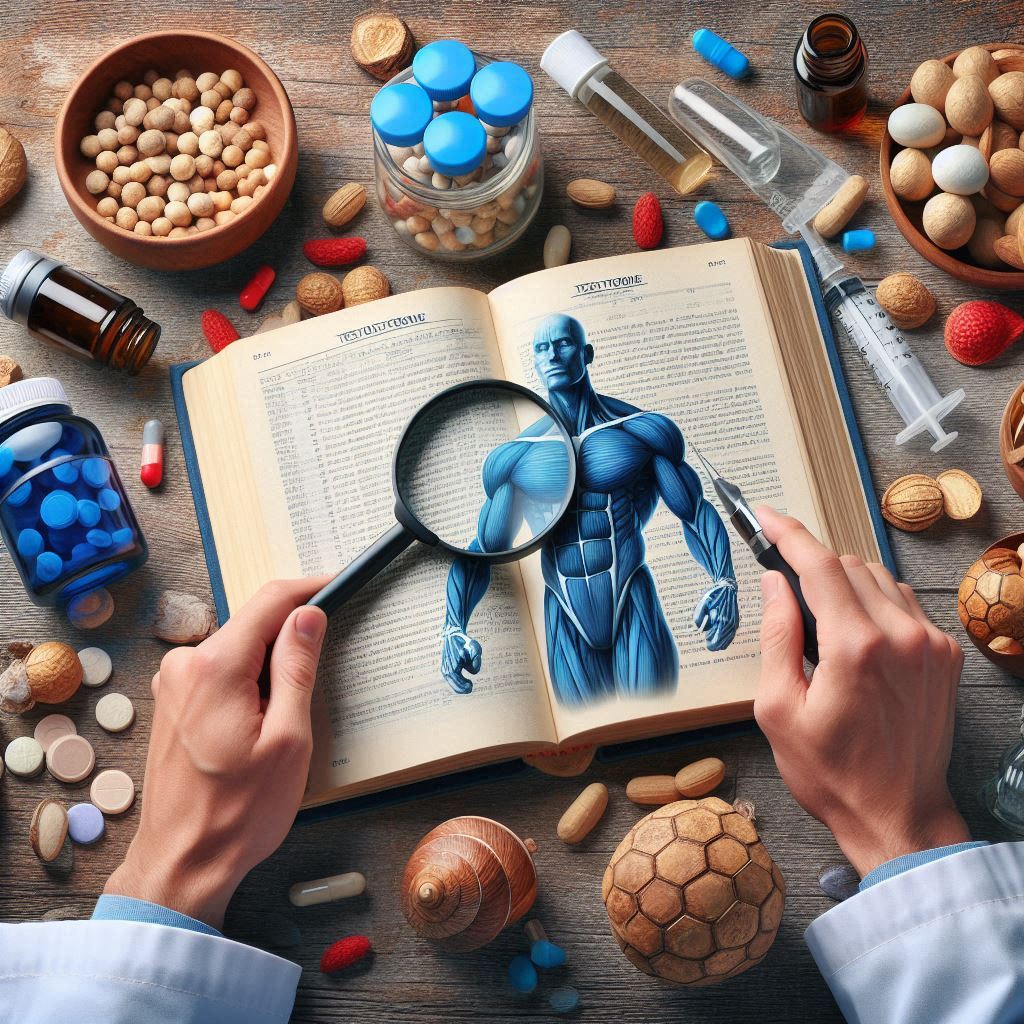
I am Dr. Mike for RP Strength, and I have two amazing, stellar, young, supple, nubile researchers with me today, Dr. Pac and Dr. Milo, or Dr. Milo and Dr. Pac, known as the Wolfpack when they are together. They do gang signs because they’re from Europe, and that’s where gangs come from. But there’s another thing that comes from Europe: it’s not gang-related.
It is a series of supplements you may be able to take that increase your testosterone. Do those things really come from Europe? Heck, if I know. No, probably not. Most of them, if not all of them, don’t. What comes from Europe? Cigarettes, red wine, and general civilization.
And America. All America. And a general blasé attitude about what this life is anyway. Yeah, I think that’s a main character trait. I don’t like it. Maybe the French are like that? Definitely the French. He speaks French, so I can say it. You talk that stuff.
Do you feel more superior every time you speak? What is the meaning of this anyway? Yeah, both superior and totally kind of tuned out of life. Just light me another cigarette, I’ll read some more poetry noir, and die in a motorcycle accident. That is the French way. Abu, you know, or as they say in Greek, Kami.
Now, believe it or not, folks, we’re not just here to learn about geography and cultural heritage. There are claims abounding that there are pills, potions, and powders you can take—supplements, not steroids, herbal supplements in fact—that can boost your testosterone and thus boost your level of jackness, make you more popular, make you happier, and get you more sex.
Do Testosterone-Boosting Supplements Really Work?
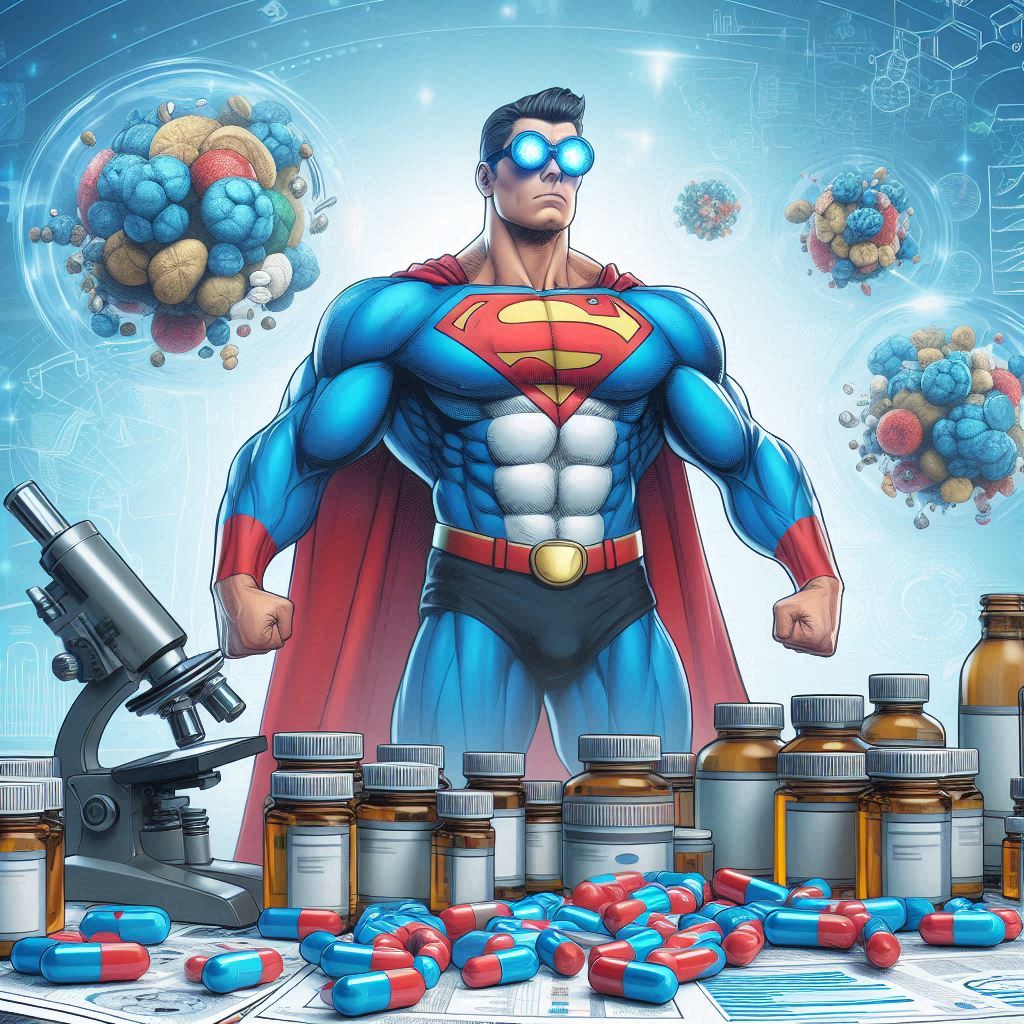
I wasn’t sure if the hubbub about testosterone supplementation was true. The last time I looked into it was about 10 years ago, and we had nothing that reliably boosted testosterone levels or had any kind of anabolic effects like getting jacked, etc. So I called my buddies Pac and Milo—Dr. Pac and Dr. Milo.
They both have PhDs in sports science, and they went and did a deep dive into common testosterone-boosting supplements. Do they work? If so, how? Is there a reason to suspect that they work? Is there a reason to suspect they’re total BS? Or is it one of those situations where something may be promising or not promising, but more research is needed?
Welcome Dr. Pac and Dr. Milo
Fellas, first of all, welcome. Thank you for having us. World’s longest intro. You’re welcome for that. Each of you really dove deep into two of the supplements, so four total, kind of the four most popular ones, seemingly by a long shot. I didn’t even know there were four. I thought there was like one and a half, but there are apparently four. Who wants to start?
Ashwagandha: Does It Boost Testosterone?
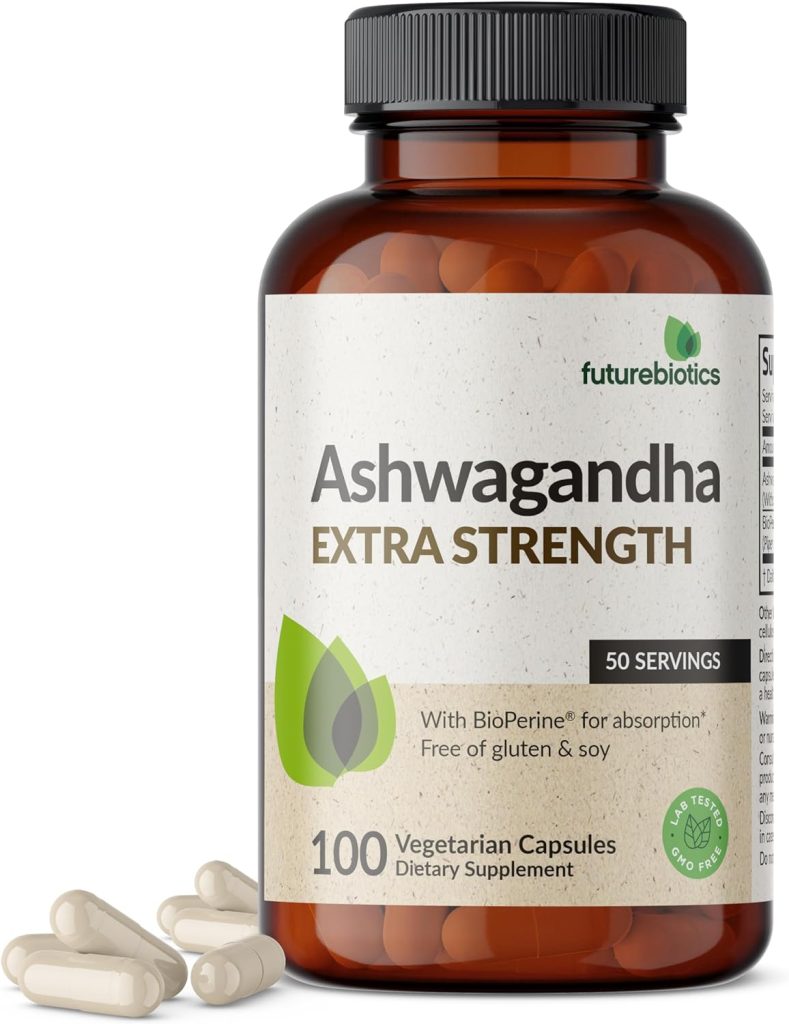
I’ll start, Pac. Perfect. We’ll start off with ashwagandha. Have you ever heard of ash? I’ve bathed in monkey blood in a temple in India. It was called Ashwagandha Temple. Now, the monkey blood is delicious if you drink it and definitely increases your testosterone, if for anything else other than the monkey testosterone you directly absorb.
But I actually do currently take ashwagandha. Respect. Same, but I don’t take it for its testosterone-boosting benefits because the considerable milligram number of testosterone I inject into my body daily will take care of that for me.
I take it because it has anxiolytic properties, reducing anxiety. I get anxiety from taking lots of steroids, and so ashwagandha does a great job and is empirically validated to be quite a decent anxiolytic medication. But I’ve heard musings about its testosterone-boosting abilities. Tell me about them.
Sure. It’s good that you mention the anxiolytic effects of ashwagandha because we do have documented effects of ashwagandha on stress and anxiety, and that’s the reason I take ashwagandha as well. When it comes to testosterone, people will rely on three studies to make the claim that ashwagandha could be a game-changer for testosterone.
Better than steroids, bro. I’m not sure if somebody has actually said that, but in the world of pseudo-deep dive, people want that extra hack. They want to hear about new herbal supplements. Ashwagandha is an evergreen shrub, mainly from India, and a lot of the…
I got that part right. Yeah, that’s what the monkeys were eating before they bled into the lake. I’m kidding. Classic India. Classic India. That’s mild as far as India tropes go. Yeah. So, when it comes to testosterone, two of those studies were actually conducted in India. Fun fact. On blood-temple monkeys? On people. On recreationally active individuals.
Okay. Two different labs in India or no? Not the same lab. That’s good. A little bit of multi-lab confirmation, assuming they found the same results. I’m just cutting you off rudely at this point. That’s fine. I am proficient in cutting off people, so I empathize. Do as they do.
Research Studies on Ashwagandha
So, the first study, they essentially took a bunch of, as they described it, lightly trained individuals. Sweet. The exact word was that they didn’t say untrained, but they said they had dabbled in training. Little training experience. Yeah.
That’s when the guy at the study asks you, “Have you trained?” and you’re like, “Alright, you’re in.” I’ll let you guess what their mean bench press one repetition maximum strength was in pounds or kilos. Males, mostly around 28 years old. 28.
Do you want me to take a real guess or be a piece of shit about it? Be whatever you like. It’s the same guess. 115 pounds, maybe 57 kilos or something. So, their mean bench press 1RM before they started the study was 80 lbs, around 30 kilos. So, we’re talking about very dabbled, very not trained, not trained individuals.
Essentially, for eight weeks, one group took a placebo, the other group took ashwagandha. Over eight weeks, both groups made amazing strength and hypertrophy gains, and both groups started with relatively high natural testosterone.
The group that took ashwagandha saw a 14% higher increase. 14%? Yes, which, in the grand scheme of serum testosterone, is just not a lot. Exactly. So, that would be the next point. They already had high testosterone, they trained, so they were engaging in resistance training, which can have positive effects on testosterone, and they went from high to slightly higher. So, in terms of actual impact of the increase in testosterone in terms of long-term adaptations, probably not a big deal.
We had another study in aging, overweight males. Sorry, Pac, really quick. Did one of the groups gain more muscle or more strength in that study? The ashwagandha group did, yes. More muscle and strength, or just more muscle and more strength? More. Okay. So, something happened. Something happened. Maybe. Maybe. Okay, so we have that one study with all these caveats. This is not to knock the study, but it was also funded by ashwagandha—not big ashwagandha, by a company that makes ashwagandha. Little ashwagandha.
Yes, little. The other study was in overweight, aging males. 20% of them. I’m over 40 and I’m overweight and male. Yeah. I’m male. Alright, now that we’re canceled with Mr. M here, Dr. M. They took—it was a similar setup in terms of—well, not a similar setup in terms of resistance training, but they took ashwagandha and the other group took a placebo. Alright, let’s start with the caveat now. Actually, results-wise, the group that took ashwagandha surprisingly saw an increase in testosterone, but they were 20% of them.
They were shift workers or mine workers. We don’t even have that in the modern world much anymore. They have mine. Not minded workers, mine. Okay, so they’re not Professor X or something. No, Professor X and ashwagandha. The exercise was not controlled. Nothing was controlled outside of the study. Here’s a pill, see you tomorrow.
Testosterone was assessed by saliva, which was self-collected by the participants themselves. We just throw that right out. At home. And they also saw an increase that still landed them in the normal sort of testosterone range. It’s not like they went from low to high, and that was it. And a more recent 2022 study. Third study.
Third study that was published. Again, you had males who took ashwagandha or placebo for eight weeks and similarly just saw an increase in testosterone, total testosterone, where they went from normal to slightly higher normal testosterone.
So again, as far as muscle growth goes, not an increase that would probably lead to you going from an average individual to all of a sudden now you’re packing on muscle because your testosterone is slightly higher, potentially because of ashwagandha and so on and so forth. The mechanisms behind the potential increase of testosterone because of taking ashwagandha. Some people have tried to draw inferences with the anxiolytic effects that it has, but as it stands, the current totality of scientific evidence hints that maybe there’s something there, but not really anything for you to be, you know, buying as for testosterone purposes.
Interpretation and Recommendations
So, my interpretation of that—that was great—my interpretation of that is ashwagandha is a promising new supplement, new as measured by how much literature we have on it. It shows potential to reliably increase your testosterone by small margins, and even though it’s not going to result almost certainly in radically different muscle gains or radically different abilities or perceptions or anything else, for now, we might tell people, “Look, if it’s cheap and if you want to try it during a phase of training where you need a little bit of a boost, probably no huge downsides and enough research tentatively to be worth trying.” Thoughts?
I would say if you try ashwagandha, try it for its anxiolytic effects and overall stress management. If there’s anything to be done, if there’s anything testosterone-related there, that’s a bonus. But again, slight increases in testosterone while you are within the normal range of testosterone, and testosterone can be affected by a plethora of different variables, I don’t think those would mean much. Sure. So, take ashwagandha because it has been shown to allow you to manage stress better and maybe manage cortisol better. And if there’s anything to be seen from a testosterone point of view, good. There is some evidence on libido, and there were some questionnaires that were included in those studies where essentially they assessed libido and sexual drive. There you go. Sex drive. There was an increase there as well. There was. Yeah. So, maybe there is that as a bonus, but still very, very, very early stages, a lot of caveats, a lot of limitations. And if you feel like you have low testosterone, ashwagandha should not be your solution. Not a rank-one modality. Yep.
Tongkat Ali: Another Potential Testosterone Booster?
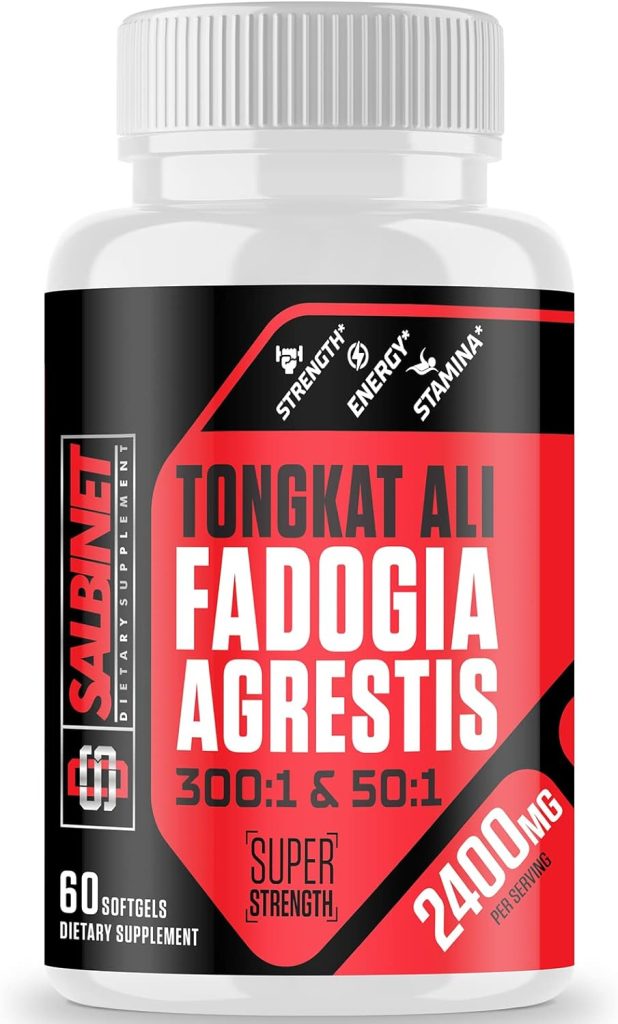
Milo, what
I have two. I will hit us with tongkat ali first. I always thought that was a nickname Muhammad Ali had. I didn’t hear about that.
That would be much cooler than the truth. Oh, shit. So, kind of talking about ashwagandha, tongkat ali, and a lot of the other supplements that are sometimes recommended on social media for testosterone boosting, there have been several systematic reviews and meta-analyses over these past couple of years trying to summarize literature on testosterone boosters for athletes or for people who are physically active already, who are kind of already doing a lot of things that might predispose you to having a decent amount of testosterone naturally.
Broadly speaking, no single testosterone booster currently has enough evidence to really support its use, at least in athletes. When you zoom out and you look at the data on ashwagandha or on tongkat ali or on shilajit or anything else, most of these studies tend to be in males, aging males, often hypogonadic, often in the absence of any physical activity, which makes generalizability from those studies to the people who are most likely to actually use these supplements a bit tricky. Specifically, when it comes to tongkat ali, there’s a few considerations you must consider before you can actually assess its efficacy. First, does it actually increase testosterone?
There is a distinction to be made between increasing total testosterone, serum total testosterone, and increasing the testosterone we “care about,” which is more so free testosterone or the one that will actually have physiological ramifications.
The one that binds to stuff. Correct. That tells muscle growth to activate versus just sitting in a protein shell in the blood, throwing the middle finger to the world. Basically, yes. To keep it simple, most of these studies don’t measure free testosterone. Very few actually do.
Typically, they measure total testosterone. Then the second consideration is: are you just after boosting testosterone, or are you after what that would presumably result in? Yeah, say both. Let’s say both. But I think specifically when we’re talking about hypertrophy, which is much of what this channel is about, the data on hypertrophy is even more sparse than on testosterone.
And a small increase, as Pac just mentioned, in testosterone from ashwagandha, for example, wouldn’t necessarily mean an increase in—like an appreciable increase in hypertrophy, especially if it’s a small increase. I mean, it might be like half a pound of muscle over the course of their whole life. Correct. Correct. So, first, tongkat ali.
We have a systematic review on specifically tongkat ali for testosterone from Liong et al. from 2022. Broadly speaking, there’s around five or ten studies. As I mentioned, many of them are in aging males, hypogonadic, physically inactive.
The rest of what we have so far, pretty much the most positive results seem to be in the populations that we would probably be speaking to the least, which is to say people with hypogonadism, aging males, and physically inactive aging males. 60 and above? 50, 60, or above.
Yeah. Okay. Generally, the studies that find an effect, even when they’re in “healthy” populations, have starting testosterone levels that are very much at the bottom of the physiological range. It’s unclear whether, for example, tongkat ali would result in meaningful improvements in testosterone levels in someone who already has decent testosterone levels to begin with.
With that being said, from what I could tell, tongkat ali has a bit more promise than most of the other supplements on the market. There’s basically next to no research still in a trained population, and the one study I deemed to be of the highest quality was published only a few months ago by Jose Antonio. I know who that is. Yeah. He did a study on tongkat ali very recently in a trained population.
They had been conducting resistance training and/or endurance training for about 10 to 20 years on average, and they measured free testosterone, total testosterone. They measured hypertrophy and strength gains from an actual lifting program that both groups—the group taking a placebo treatment and the group taking tongkat ali—were engaging in. Broadly speaking, there were no real differences.
And with that being, arguably, one of the—in my opinion—the highest quality study on the topic, with the population being studied being the most relevant one, I can’t say I recommend tongkat ali yet, at least for the population of lifters who are physically active anyways and who are doing a lot of things that you need to do if you want to have decent testosterone levels overall.
That’s not to say that it couldn’t be a good—like, and this is not medical advice whatsoever, but it could potentially in the future— Medical advice. This is medical advice. This is not medical advice. This is definitely medical advice. Just kidding. I mean, we’re doctors, for sure. Medical, though.
That’s what they say. In the future, tongkat ali couldn’t become a supplement worth taking, especially in the context of older males with hypogonadism. But for lifting currently, with the study by Jose Antonio I mentioned, I wouldn’t necessarily jump the gun.
Fadogia Agrestis: The Controversial Supplement
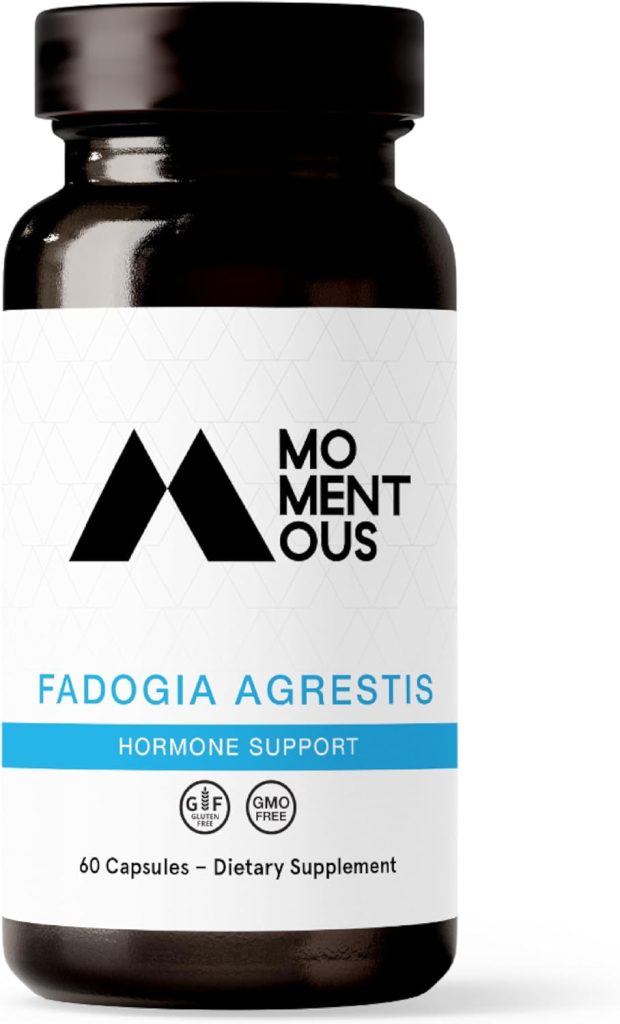
Got it. What’s your second one?
My second one is even better than the first one because cool. Ashwagandha, cool supplement to take overall, maybe not the best for testosterone. And the best part about ashwagandha is if you’re trying to get hippie girls in bed with you, you tell them you’re taking ash. They’re like, “Oh my God, that’s so earthy and spiritual.” Like, “Yeah, you want to, you know what I’m saying?” She’s like, “Yeah, totally.” And then you’re hitting it. Classic pickup. It’s too easy. Have you read the latest meta-analysis on 600 milligrams? But she’s not like doing one of these. She’s like, “Tell me, tell me.” Showing the PDF on the phone. Like, “Can you see here the figure?” You’re drawing the ashwagandha molecule, but it’s got like a third eye in it. She’s like, “I knew it. The universe knows. One, one, one, one.”
Another supplement that you often hear in the circles of like, “Okay, we’re pseudo-diving and we’re going to boost our testosterone,” besides doing the most basic things or even taking testosterone directly, is fadogia agrestis. I don’t want to say that word too much because I always pronounce it in a way that seems offensive to me. Yeah, it sounds like a “these nuts” joke. Yes, “fadogia agrestis my balls.” Yeah, or “agrestis” is someone they keep in a cage on a Roman battlefield until the battle starts not going well, they release him. He kills a couple of the centurions but then gets to the enemy eventually. Yeah, “fadogia agrestis.”
So, shrub from—I mean, depending on where you look at some sources, say Nigeria primarily, but again, shrub and known for its aphrodisiac effects. Hell yeah! I don’t give a shit what else it does now. As far as studies go, how many studies do you think we have on humans?




